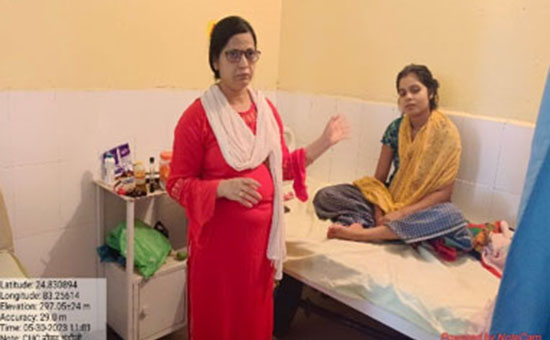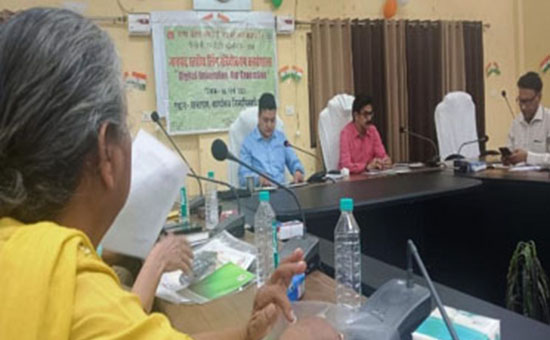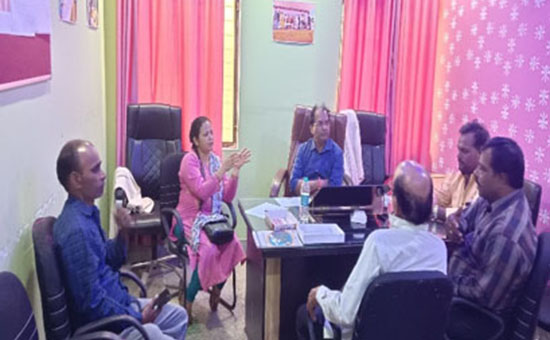Stories from the Field
Securing Health Rights and Entitlements

Access to healthcare is a fundamental right, yet marginalized communities often face discrimination and exploitation when seeking medical services. To address this, the National Human Rights Commission (NHRC) recommended a set of patient rights that should be upheld by healthcare providers.
Responding to these recommendations, the Ministry of Health and Family Welfare released India’s first Patient’s Rights Charter (PRC) in August 2018. Despite this significant step, state governments have yet to officially adopt and enforce these rights, leaving many patients vulnerable to unfair treatment.
During the COVID-19 pandemic, violations of patient rights increased drastically, prompting an amendment to the PRC that expanded its scope to include all 20 rights recommended by NHRC.
Advocating for the PRC in Uttar Pradesh
Under the Uttar Pradesh Health Campaign, Arthik Anusandhan Kendra (AAK) has been actively working to ensure the adoption of the PRC at the district level by engaging with District Health Societies (DHS) and local administrations. During a DHS meeting chaired by the District Magistrate, AAK volunteers submitted an application requesting the official implementation of PRC across all healthcare facilities. The DM approved the demand and directed authorities to display the PRC, yet the directive was initially ignored.
AAK volunteers persistently followed up with the District Programme Management Unit (DPMU), only to learn that the PRC had not been displayed in any of the nine blocks of Chandauli. Further action was taken, and after continued pressure, the health department officials finally initiated PRC displays across multiple healthcare facilities.


Realizing Patients’ Rights on the Ground
Raising awareness about patient rights is essential for ensuring discrimination-free healthcare. AAK conducted an awareness campaign across nine districts of Uttar Pradesh, including Chandauli. During a follow-up visit to Community Health Center (CHC), Naugarh, AAK volunteer Neetu uncovered violations of basic patient entitlements. Two women, recovering from delivery, revealed that they had not received the meals promised to them by the hospital. Officials falsely claimed that the women refused food, but an inquiry revealed that the hospital’s vendor had wrongly assumed that patients didn’t require meals. With AAK’s intervention, meals were immediately provided, ensuring patients received their rightful care.
Further, patients reported being forced to purchase post-pregnancy belts from private medical stores. Upon escalation, the Medical Officer In-Charge (MOIC) ordered officials to provide the belts within the hospital, refunding those who had purchased them privately.
Expanding the Initiative
The implementation of the PRC and increased patient awareness have significantly improved healthcare experiences for marginalized communities. By ensuring that patient rights are upheld, AAK is reducing out-of-pocket medical expenses and fostering accountability within healthcare facilities.
AAK continues to lead similar health campaigns across 24 districts in four states, pushing for fair and discrimination-free healthcare. Through persistent advocacy and community engagement, AAK is transforming healthcare access—one district at a time.
